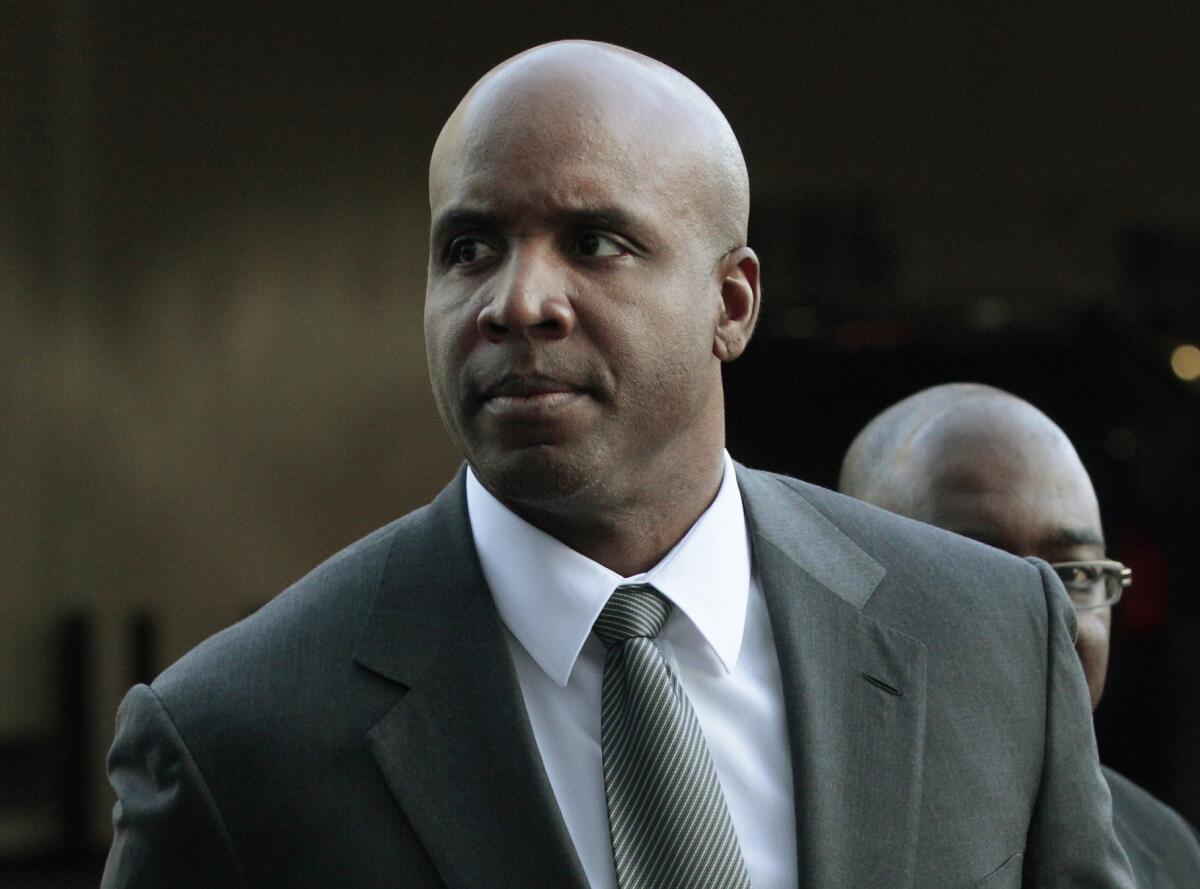Barry Bonds says Justice Department’s decision to drop case gives him ‘great peace’

Former baseball player Barry Bonds arrives for his trial at federal court in San Francisco in March 2011. The Department of Justice said Tuesday that the reversal of Bonds’ conviction for obstruction of justice would stand.
- Share via
Barry Bonds is off the hook.
After a decade of investigating and prosecuting baseball’s home run king for obstruction of justice, the U.S. Department of Justice said Tuesday morning that it would not challenge an April reversal of the former San Francisco Giants slugger’s felony conviction.
“The finality of today’s decision gives me great peace,” Bonds said in a statement on his website. “As I have said before, this outcome is something I have long wished for. I am relieved, humbled and thankful for what this means for me and my family moving forward. Throughout this process my faith in God, along with so many who have supported me, is what has kept me going. Thank you to all of you who have expressed your heartfelt wishes to me; for that, I am grateful.”
A jury ruled in 2011 that Bonds obstructed justice when he gave a grand jury a long and evasive answer in 2003 when asked if personal trainer Greg Anderson had ever injected him with steroids.
Bonds’ answer to that led to all of this legal action: “That’s what keeps our friendship. I was a celebrity child, not just in baseball by my own instincts. I became a celebrity child with a famous father. I just don’t get into other people’s business because of my father’s situation, you see.”
Bonds was sentenced to 30 days of home confinement, two years of probation, 250 hours of community service in youth-related activities and a $4,000 fine. He served the home confinement portion while waiting for his appeal to be decided.
In 2013, a 9th Circuit panel upheld the initial ruling, stating that factually true statements that are intended to mislead or evade can lead to an obstruction of justice conviction. But a federal court overturned that decision in April.
The Department of Justice was left with the option of asking the U.S. Supreme Court to hear its case against Bonds. Instead, the DOJ said in a one-paragraph court filing Tuesday that the reversal of Bonds’ conviction would stand.
Twitter: @Chewkiii
More to Read
Go beyond the scoreboard
Get the latest on L.A.'s teams in the daily Sports Report newsletter.
You may occasionally receive promotional content from the Los Angeles Times.











